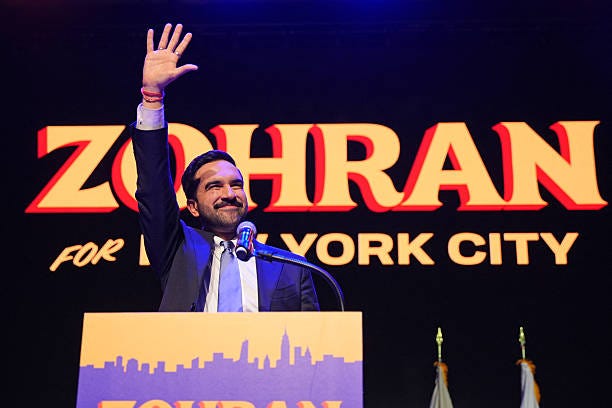
How likely is it that NYC Mayor-Elect Zohran Mamdani will be able to implement any of the policies that he campaigned on?
Is he really going to, like NY Governor Hochul just said, "set politics on fire?"
CEO of Gulf Coast Bank & Trust, Guy Williams, joined my show to discuss a handful of current issues, one of which was Mamdani's recent election and how his future success might shape up.
“New York is set up for an interesting next few years. The challenge is that Mamdani has run on a number of different issues; he’s repeated them over and over: Freeze the rent, speed up buses and make them free, provide free child care, and provide government-run groceries in each borough,” Williams explains. “One of his problems with his message is the word 'free.'”
“His view of government is really incredible,” Williams continues. “The statement he made during his acceptance speech was: we will prove there is no problem too large for the government to solve and no concern too small for it to care about.”
Williams explains that although Mamdani spent his campaign repeating promises, he’s set to enter a political atmosphere in New York that will be anything but accommodating to his policy wish-list.
“The challenge he faces is that Gov. Hochul endorsed him, but the governor has to approve any tax increase necessary to fund his agenda. She’ll have to prove a state income tax increase and a corporate tax increase. The timing couldn't be worse,” states Williams.
But although he has the Governor's endorsement, Williams explains that she's unlikely to cater to his platform. “She’s running for reelection next year, and very few politicians want to pass big tax increases, and she even said we’re not looking at increasing the corporate tax or income tax.”
Even Mamdani's smaller policies, like free bus fare, are complicated.
“Unless you find a solution to pay for the bonds, you can’t have free buses,” Williams explains.
New York City has issued millions in revenue bonds using future transit fares to fund infrastructure projects. If NYC decides to remove bus fare, the bond insurers are going to step in and take the city to court.
So, although New York Governor Hochul endorsed Mamdani, she hasn't issued a single claim that she will work to increase taxes for his policy proposals.
"Mamdani has run on a lot of things paid for by taxpayers, but there's no source of revenue," Williams says. "So the shock of what-I-promised-vs.-what-I-can-deliver will be very real.”
However, there are options for a Mamdani administration to hike taxes, but Williams explains why it would be a precarious decision:
“He can raise property taxes. Now that’s going to be very difficult because he also promised to freeze rent. If you freeze rent and also raise taxes on people who own apartments, they might not be able to maintain the apartment building. You’ll see foreclosures; you’ll see banks not willing to lend to rent-controlled properties. And you can also raise fees. But the challenge NYC is facing is that there’s been a migration of people out of New York.”
Williams cites a statistic indicating that NYC may experience a more rapid exodus to states with lower tax rates.
“Texas now has more financial jobs than New York. They're starting a stock exchange. And interestingly President of JPMorgan Chase said many people don't realize, but we at Chase have more employees in Texas than we have in New York.”
